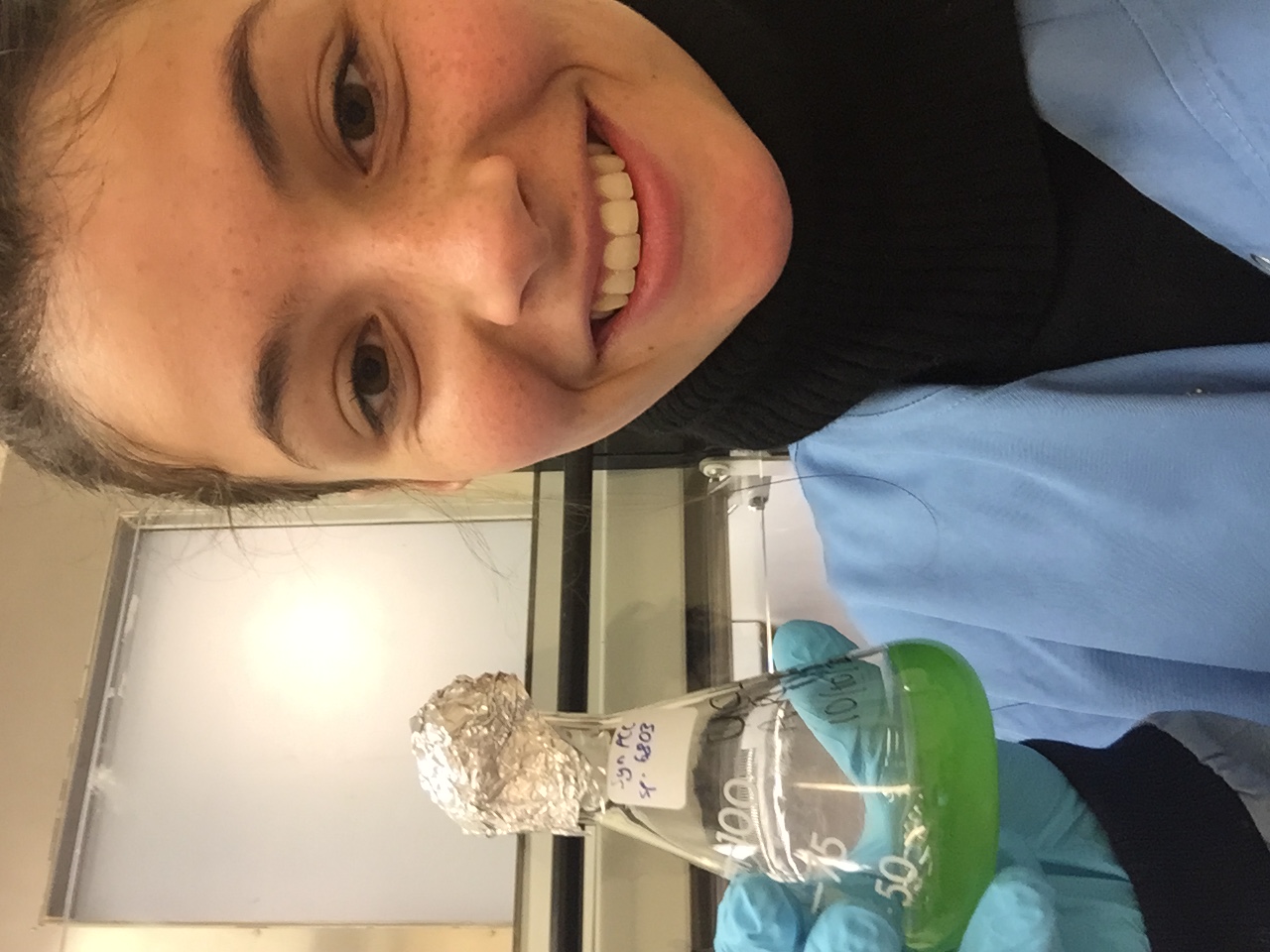| Line 22: | Line 22: | ||
<div class="team10cover"> | <div class="team10cover"> | ||
| + | <br> | ||
<h1> <center> <font size = "2000px" > <font color = "white" > COLLABORATION </font> </font> </center> </h1> | <h1> <center> <font size = "2000px" > <font color = "white" > COLLABORATION </font> </font> </center> </h1> | ||
<h3 style='line-height: 40px;'> <center> <font color = "white" > Have a look at how we collaborated and helped other iGEM teams this summer! </font> </center> </h3> | <h3 style='line-height: 40px;'> <center> <font color = "white" > Have a look at how we collaborated and helped other iGEM teams this summer! </font> </center> </h3> | ||
Latest revision as of 03:31, 20 October 2016
<!DOCTYPE html>
COLLABORATION
Have a look at how we collaborated and helped other iGEM teams this summer!

Overview
The UCL iGEM team have thoroughly enjoyed collaborating with iGEM team all around the world and forming a network of synthetic biology enthusiasts just like us around the world. We have collaborated with over 69 iGEM teams and received a lot of ideas and input from other teams. Scroll down to see what we have been up to!
Value Proposition interviews for Alphabrick
Alphabrick, one of the UCL iGEM 2016 entrepreneurial ideas was made by iGEM team members for iGEM teams. Our software platform would not be optimised for use unless we obtained user feedback from iGEM teams. Hence, we collaborated with over 69 iGEM teams, to gather feedback to shape our alpha version for use in their projects.
High school teams
We also helped the CLSB-UK iGEM team characterise one of their parts as they did not have a spectrophotometer at their high school. We measured the optical density of a culture of Synechocystis over the course of 5 days. CLSB-UK needed the optical density readings to check that their method of using a colorimeter with a particular filter was working. We obtained the started culture with the growth medium and obtained the data by incubating the culture at 25C with light with mixing. The Synechocystis we obtained data from was non-transformed with no foreign genes.

Figure 1:The data we generated to standardise the growth curve of CLSB (and coloured green appropriately)



Collaboration with Dundee iGEM team
Following our talks with Aubrey de Grey and Filipe , we really wanted to conduct experiments that show that our lycopene probiotic can survive in the gut and acidic conditions of the stomach. We were very lucky to have met with Dundee GEM team at the UK GEM meet up where they told us about a stomach simulating device that they own. The bacteria in a sealed container and reconstructing the conditions found in the stomach. A manual pulley system replicates the churning of the stomach with an acidic environment.
We sent out a slab of bacteria that contained our lycopene biobrick within it, to test whether our bacteria could survive in the stomach, in order to provide proof that our probiotic idea would be functional in the human body. Dundee then measured the growth of our bacteria by taking optical density measurements every 15 minutes for an hour since adding it to their device. The results were extremely promising; our genetically modified bacteria grew successfully in their device. The full discussion and our results can be seen on the demonstrate page.
UK iGEM MEET-UP: Organised by Westminster - 18th - 19th August
Not only were we able to meet up with most of the UK iGEM teams but we also got a chance to present our project for the first time. This meant that we could start to prepare ourselves for the finals at Boston by receiving feedback on our presentation/ project from other iGEM teams at the meet up.
We also got to see what the other teams were doing such that we could organise a possible relevant collaboration. This meet up was very exciting and fun! Once our presentation was over, we asked the University of Westminster iGEM team to give us some feedback on our project. They mentioned that we should include some facts in our presentation to make the audience realise that each of our projects are important in society and the problem that they solve is an important one. Their feedback allowed us to improve the way we communicate our project to different audiences, especially those that do not have a strong synthetic biology background.
The feedback we received has really helped us rethink how we can present our project to the world in a better and clearer way. We now have a clear understanding that not everyone has the knowledge that we do about our project and the science behind it. Therefore, it is essential that we receive feedback from people who were listening to our presentation and act upon it by making our presentation clearer and easier to follow and understand. Through our iGEM journey we have found out that its essential that we focus on clear communication of our project.




International survey
To kick-start our iGEM journey, the team decided that we wanted to distribute an online survey about synthetic biology and ageing. We wanted to find out what people think about synthetic biology not just in the UK but globally. It would not have been possible without the help of the iGEM teams that helped distribute the survey on twitter and took part in the survey! The teams that collaborated with us were:
- Imperial team
- XMU-China
- Edinburgh team
- NRP-UEA iGEM team (Biowire)
- Dundee Schools iGEM
- Team LMU and TU Munich
- Tianjin University team

Rice iGEM - Humans of synbio
We loved the idea of sharing personal experiences within synthetic biology and ageing and wanted to collaborate with RICE iGEM.
Inspired by Humans of New York, RICE iGEM had the fantastic idea to do the same for all of us synthetic biologists working around the world.
It provided a great platform to open up about why we, and in particular teammate Abbie, are taking part in iGEM and what motivates us to be involved with synthetic biology.
After discussing the Humans of synbio questions, we saw the potential to spread the synthetic biology message globally. we were featured on their Instagram and Facebook pages. We hope this will open up a dialogue between teams but also with the public and will become something that future iGEM teams get involved with.

Skype sessions
- Meet up with Westminster team - June 23
- Exeter team - July 1st
- Paris Bettencourt - July 4th
- UNL team
- Trinity team
- Meet up with Imperial team - July 8th
- Trinity iGEM team - UCL academy on youtube
- Survey for Vilnius iGEM'16

Skype sessions
- Meet up with Westminster team - June 23
- Exeter team - July 1st
- Paris Bettencourt - July 4th
- UNL team
- Trinity team
- Meet up with Imperial team - July 8th
- Trinity iGEM team - UCL academy on youtube
- Survey for Vilnius iGEM'16

